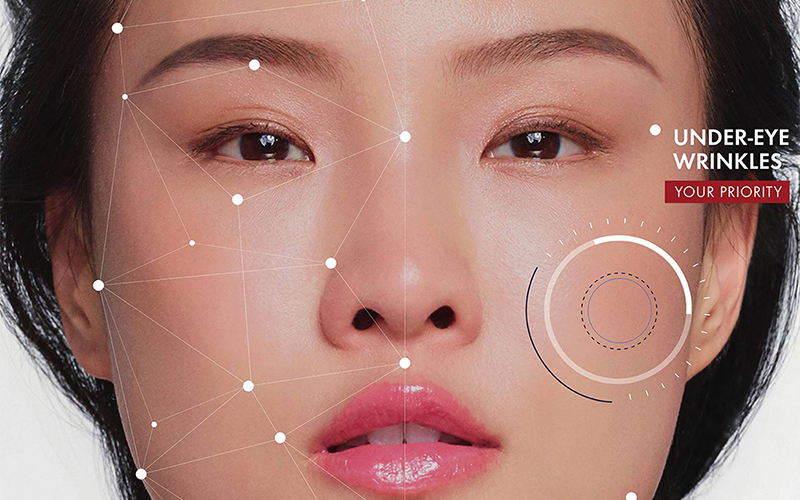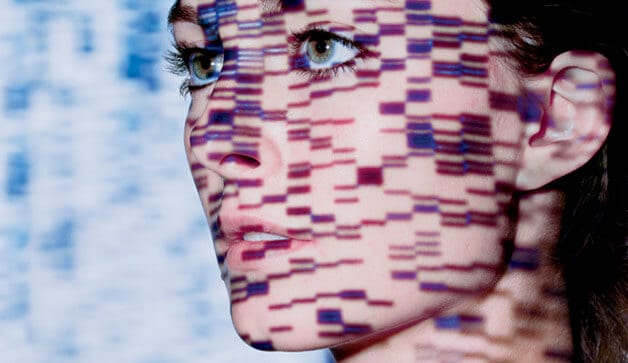The Technology Making Beauty Hyper Personal
From dermatologists using DNA swabs to at-home skincare dispensers that track sleep and menstrual cycles, tech is fuelling the trend for personalised beauty
By Rachael Taylor

Every good beauty technician knows that the key to a great client experience – whether that be for a quick manicure or a full facial – is to make it personal. As beauty trends lean in to personalisation, it is more important than ever to treat clients as individuals and offer treatments and make-up that celebrate diversity.
This can be daunting, however. The kind of alterations your kit bag would require to cater to all individual beauty needs and desires simultaneously are infinite, and expensive. This is where technology is stepping in as major cosmetic companies invest in the development of tech that delivers highly personalised beauty regimes at the push of a button.
SkinCeuticals, a L’Oreal-owned US cosmeceutical brand, has created what it calls “a mini skincare laboratory” to answer the personalised beauty trend. This desktop anti-aging corrective serum dispenser, called the Custom D.O.S.E, has been designed for use by dermatologists, and is currently being used at a handful of locations in the UK, including The Cavendish Clinic in London and Medikas in Bristol.

Following a consultation to determine which formula of serum would be best suited to the client’s skin, simply programme it into the machine, which – performing 1,200 rotations a minute – will dispense it within five minutes. It is then recommended that the client returns every three months for an assessment, at which slight tweaks to the serum’s formula can be made to reflect changes to the skin.
In Australia, skincare brand Rationale has launched a personalised beauty service that is based on a DNA swab. The DNArray consultation, which is now being used in the UK by The Banwell Clinic in East Sussex, analyses genetic markers using skin scanning technology and UV diagnostic imaging to create an “understanding of your skin’s genetic blueprint”.

As well as taking a cheek swab to collect DNA, the initial appointment with the client also calls for a “genetic skin and lifestyle” questionnaire, a thorough cleanse before running UV diagnostic imagery and a more traditional consultation to find out more about the client’s skin. This is followed up two weeks later, once the lab results are in, to prescribe a tailored routine based on the science; one that promises “luminous skin for life”.
Both Rationale’s DNArray and SkinCeuticals’ Custom D.O.S.E have an eye on the future – this is not just about creating the right skincare routine for right now, it is about growing with clients and reacting in real time to their changing skin needs as they age or the seasons change. Japan’s Shiseido is taking this theory even further.
It has created an at-home personalised skincare dispenser called the Shiseido Optune that is powered by an app. Users scan their skin daily and upload photos – as well as allowing the app to track their sleep patterns, menstrual cycles and changes in mood – and the Optune will select the right course of action from 80,000 options. The dispenser itself holds five skincare cartridges, selected based on initial data, which then mix and match to provide a daily two-step skincare solution that truly is the epitome of personalised beauty.
It’s important to understand how different industries are going to change with new technologies. Our Discover Beauty courses prepares you for a career in the beauty industry and allows you to turn your passion into a profession. Go to: free2learn.org.uk/discover-beauty-short-course/ to see how you can master new skills that will make you stand out with employers.



